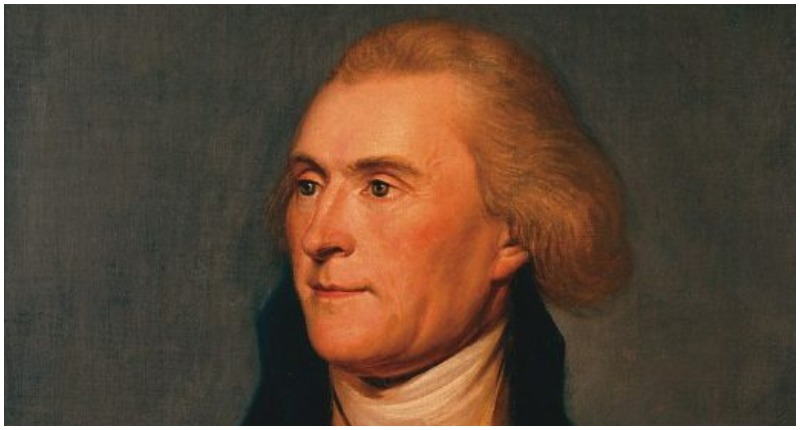Thomas Jefferson, third President of the United States, was an extraordinary personality. For all his faults he was one of the main guiding lights of the early American republic and perhaps its most influential thinker.
It is important to recognize that the man known for being the primary author of the Declaration of Independence was also an architect, scientist, philosopher, writer, and so much more.
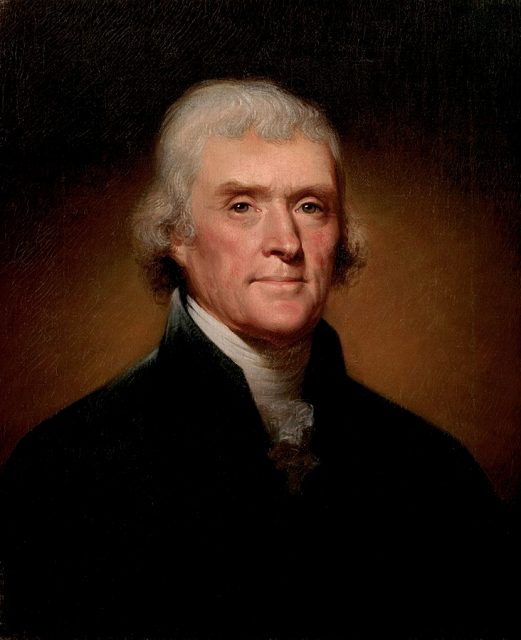
What frequently gets lost in history’s musings about him is the fact that Jefferson was a brilliant politician – though a bit eccentric and slovenly in his personal affairs, which sometimes bled over into his public affairs, as in the time when he greeted a British diplomat at the White House in less than formal dress – but more of that in a moment…
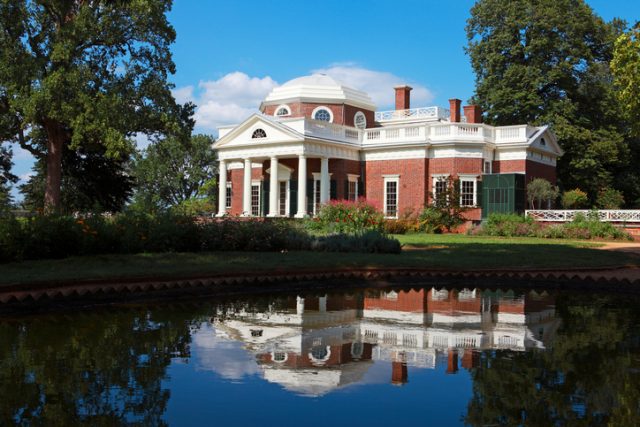
There were many things that Jefferson felt strongly about, as anyone who debated him could tell you. But two stood out above the rest: Alexander Hamilton, and the British. Jefferson was fond of neither.
Hamilton, the brilliant but eccentric former aide to Washington who became the nation’s first Secretary of the Treasury, one of the authors of the immensely influential “Federalist Papers”, and a believer in a strong, centralized government.
Jefferson, by contrast, was wary of centralized power and through the years of first Washington’s presidency (when he served as the first Secretary of State) then John Adams (as Vice-President), he debated Hamilton endlessly on the nature of government.
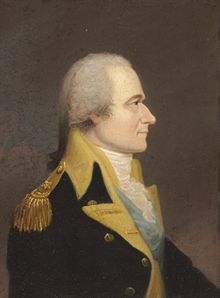
It was the factions of Jefferson and Hamilton that formed into the first American political parties, and if you think politics today is negative, read about the insults and machinations that took place between Jefferson and Hamilton and those that supported them!
Then, of course, there was the British. Understandably, Jefferson, a marked man during the American Revolution, was not fond of England or its form of government. Everything that Jefferson became known for during the Revolution and afterward was in opposition to what the British ruling classes stood for – a king, an inherited and titled aristocracy, and the rule of the minority rich over the majority poor.
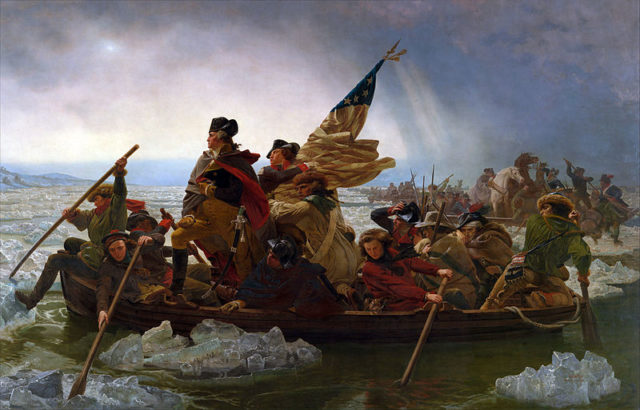
At the beginning of the French Revolution which saw the people of France overthrow their king and nobility, Jefferson was the American minister to that country. He was looked up to as an Enlightenment philosopher, and a revolutionary leader.
The times even saw Jefferson in agreement with some of the harsher measures taken during the French Revolution and supported the occasional spilling of noble blood as a way to ensure the rule of the people. Of course, this did not make him greater friends with England.
As was mentioned, friends took note of Jefferson’s fastidiousness in dress and manner – though sometimes it took him a while to get going in the morning. In at least one notable case, however, Jefferson lingered in the White House in his pajamas into the workday. Though he sometimes could get so involved in a project that everything else took a back seat, he rarely forgot to “dress”.
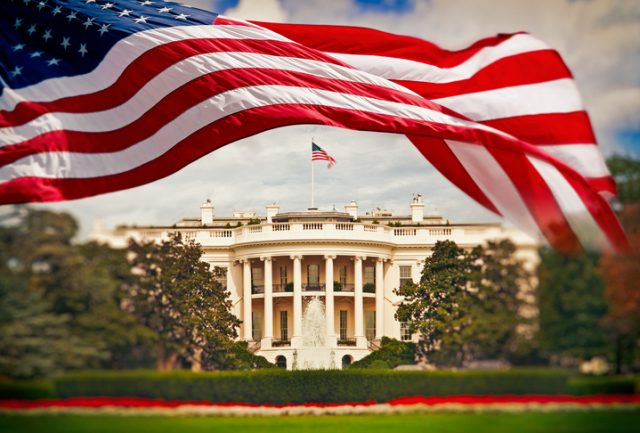
In 1803, Britain sent Andrew Merry, a rich wine merchant and diplomat, to be its representative in Washington. Likely to show Merry, and therefore England, exactly how he felt about him/them, Jefferson wandered in late to his scheduled meeting with the ambassador from the world’s richest nation.
Not only was Jefferson late to the meeting, but he was also dressed in his pajamas, robe and slippers. Seeing Merry’s displeasure at his appearance, Jefferson proceeded to show his own displeasure – the meeting was a session of barely contained personal and international hostility.
Of course, this was not helped by Merry’s attitude – most of the people who encountered him during his three-year tenure in America considered him snobby, stiff, pompous, and some other adjectives that are best left out of print.
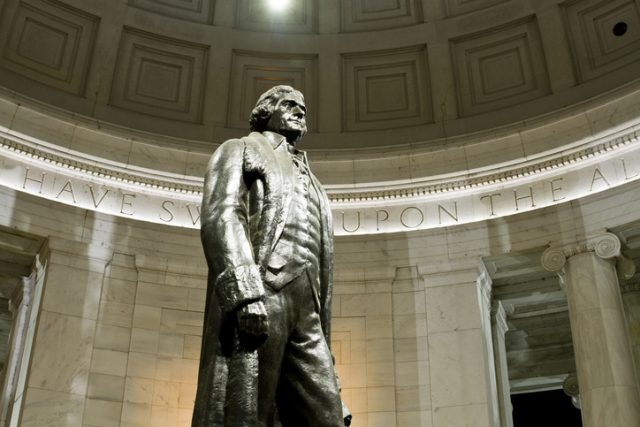
Jefferson and many others (with the singular exception of his Vice-President Aaron Burr) also disliked Merry’s wife, Elizabeth, who, like her husband, made it clear she thought America to be an uncultured backwater. Jefferson called her a “virago”, a bad-tempered and domineering woman.
As if the pajamas were not enough, Jefferson later invited the Merry’s to the White House for a formal dinner – ostensibly in their honor. Almost immediately, Ambassador Merry realized “honor” was the last thing this dinner was about – at least in his mind, for the French ambassador was also invited…France and Great Britain were at war.
When the dinner began, Mrs. Merry waited for the President to escort her to her chair, as protocol dictated. Instead, he took the arm of Dolly Madison, who served as informal hostess for the bachelor Jefferson, and escorted her around the room.
Read another story from us: The Dark Side of Mark Twain
When it came time to be seated, Mrs. Merry was finally not ignored, and took her place, but her husband was openly ignored, and was forced to take the only empty chair – far from the head of the table where he “should” have been. Thus Jefferson’s amiable loathing manifested itself to the country he once was a subject of.
